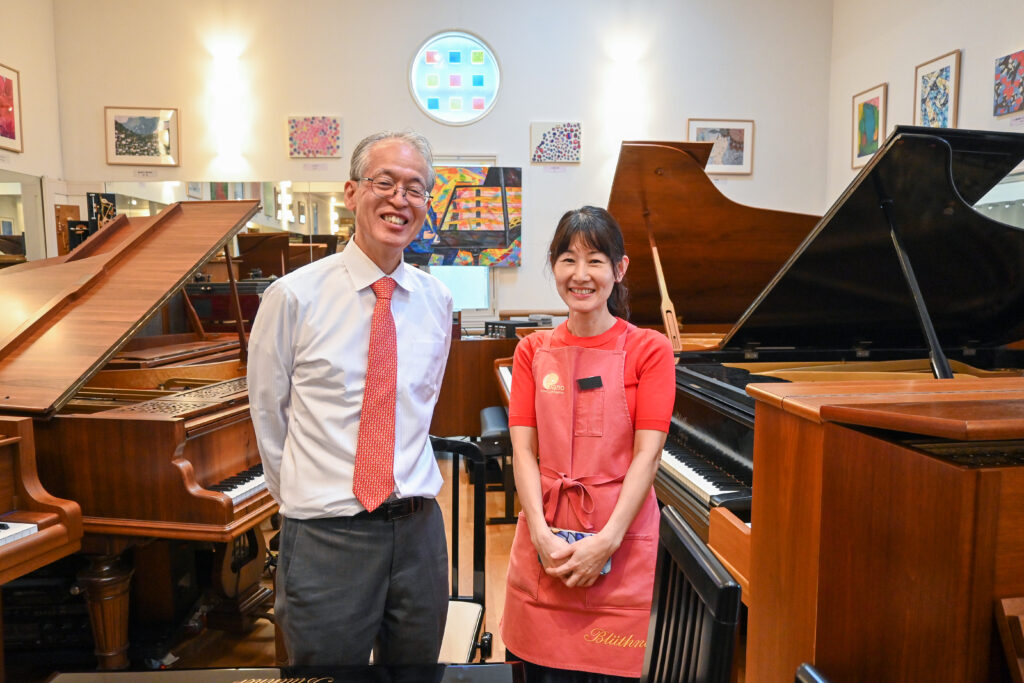Petero Yokoyama, a piano tuner and the representative of Piano Clinic Yokoyama, has been praised by European master performers for his almost magical tuning ability. His approach considers the unique characteristics of each manufacturer; he listens to the components of the piano’s voice and maximizes its inherent singing quality in the traditional Western style. When playing the keys, the sound resonates like harmony, allowing for rich expression of tonal variation through touch. Tracing the history of Western music and instruments born in stone churches, one inevitably comes to song (chant). In other words, we might say the human voice is at the heart of Western instruments.
After going independent at 27, Yokoyama continued to learn from piano technicians across Japan. In 1999, he had a fateful encounter with a world-renowned pianist, the late Jörg Demus. Impressed by Yokoyama’s tuning, Demus entrusted him with tuning the pianos in his Vienna residence and his villas in Salzburg and France for the next 20 years. Demus, known as a piano collector, reportedly had 80 pianos in his estate at that time. Twice a year, Yokoyama would stay for about a month and a half. He was meticulous in his work, sometimes tuning only four pianos during that period. Demus introduced Yokoyama to a workshop that dealt with early instruments, providing him the opportunity to learn about repairing old pianos. Eventually, Yokoyama was entrusted with the repair of Demus’ valuable early instruments. To push his knowledge further, he visited piano technicians in cities like Berlin, Paris, Prague, Brussels, and New York, tirelessly learning by observing concert tuning and repair work day and night. “Currently, we have a piano here that Demus cherished and frequently used. Although we are a retail store, we also have non-sale items that feel like they belong in a museum,” he says with a gentle smile.
Born in Kumamoto, Yokoyama was raised by a photographer father. Before dawn, his father would take him to Mount Aso, giving him a hand-me-down camera for taking pictures together. The image of his father, deeply moved by nature and shedding tears as he passionately clicked the shutter, remains etched in Yokoyama’s heart like a single photograph. He inherited this rich sensitivity but through music. In the first year of middle school, he attended a concert with his music teacher, Kōsuke Kiyota, where he heard a live orchestra for the first time—the Czech Philharmonic Orchestra. While only 13, he felt an overwhelming emotional impact, as if something extraordinary were happening on stage–a sensation too intense for him to fully comprehend. He says he forgot to wipe away his tears as he became immersed in the music before him.
“I want children to listen to good music,” he says, based on his own experiences. To allow local residents to enjoy music casually, he hosts concerts at his store. He also runs a music school, the Rishumoa Music Institute, whose aim is to allow people to “live a rich life with a lifelong love of music.” It attracts students from all over the country. Yokoyama’s undying passion for seeking out good sound has led to encounters with piano technicians and musicians worldwide. He fondly remembers days spent with Demus, forgetting the passage of time as they discussed pianos late into the night. Those treasured memories now imbue the piano he inherited from Demus–come have a listen!


